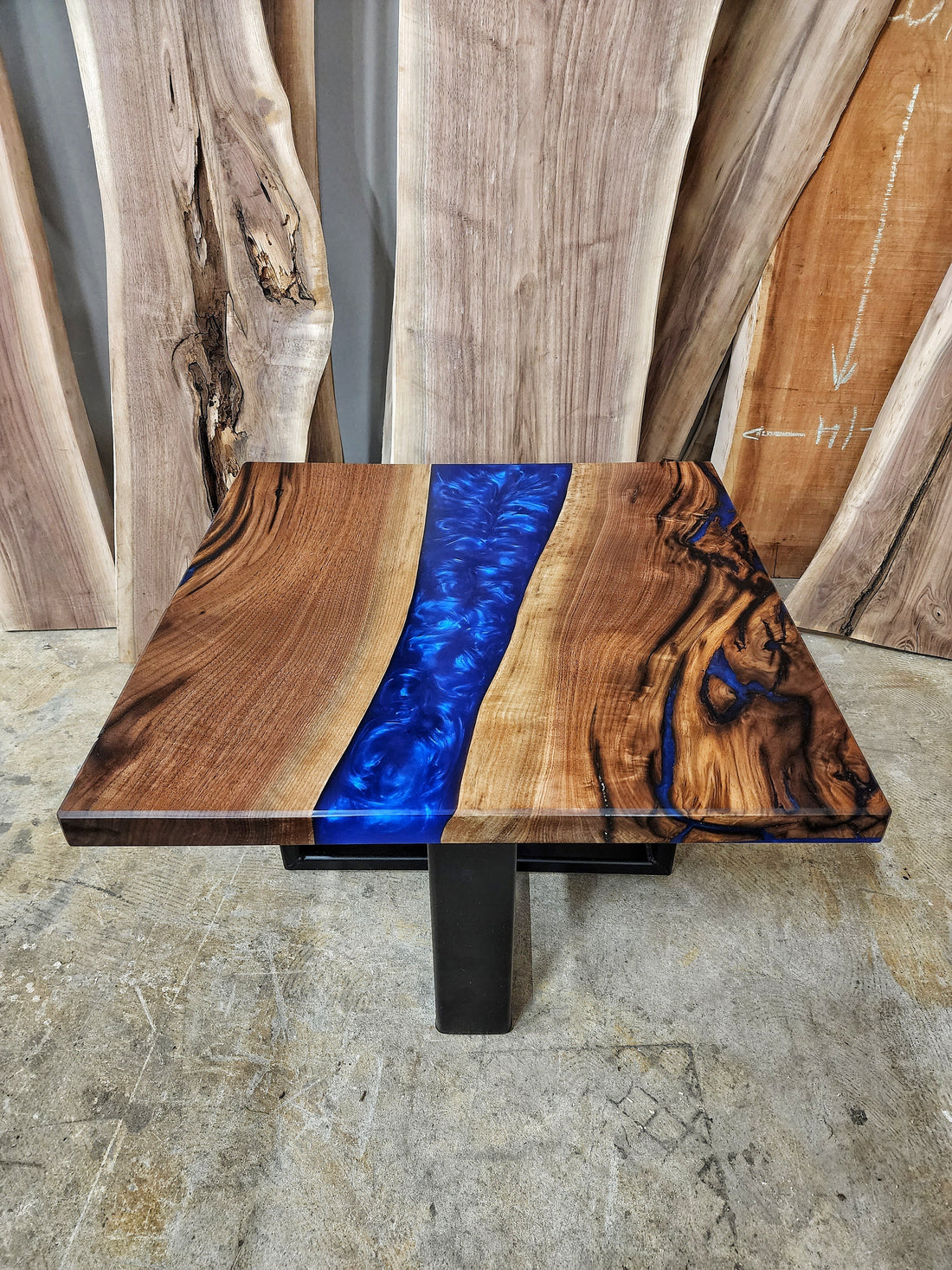As more consumers turn their attention to sustainability, many wonder about the environmental impact of the products they purchase. Epoxy resin furniture, known for its stunning, durable, and customizable designs, is no exception. At Backyard Resin, we understand the importance of eco-conscious decisions, and we strive to create beautiful furniture that not only meets your style and functional needs but also takes the planet into account.
In this post, we’ll explore the environmental impact of epoxy resin furniture, including its sustainability, sourcing practices, and how it compares to other materials. Let’s dive in and see how your custom resin furniture can be both stunning and eco-friendly!
1. Epoxy Resin: What Is It Made Of?
Epoxy resin is a type of synthetic polymer made from a combination of organic and inorganic chemicals. Typically, epoxy resins are mixed with hardeners to create a solid, durable finish. While the resins themselves are chemical-based, it’s important to understand how they are used in furniture design.
Epoxy resin furniture is crafted by pouring resin into wooden forms or molds, allowing it to harden into a smooth, glossy surface. It’s a process that results in highly durable pieces resistant to wear, scratches, and heat.
2. The Environmental Impact of Epoxy Resin
Epoxy resins themselves can have a significant environmental footprint due to their chemical makeup. Some resins contain petroleum-based ingredients, which are not renewable and can produce volatile organic compounds (VOCs) during production. However, not all epoxy resins are created equally, and many companies, including Backyard Resin, prioritize the use of low-VOC, more eco-friendly resin options.
Choosing low-VOC resins reduces harmful emissions during both the manufacturing and curing processes, making these types of resins a more environmentally friendly option.
3. How We Minimize Environmental Impact at Backyard Resin
At Backyard Resin, we believe in being conscious of our environmental footprint. While the epoxy resin itself does carry some environmental considerations, there are several steps we take to ensure our furniture is as eco-friendly as possible:
-
Locally sourced wood: We use sustainably sourced wood from local suppliers in the Ottawa Gatineau area to reduce our carbon footprint. By working with local mills, we minimize the transportation distances involved, cutting down on fossil fuel consumption and supporting responsible forestry practices.
-
Eco-friendly resin options: We offer epoxy resins that are designed to be low in VOCs, reducing harmful emissions and making the curing process safer for both artisans and the environment.
-
Long-lasting durability: One of the most significant environmental advantages of epoxy resin furniture is its durability. Epoxy resin creates long-lasting, highly resistant surfaces that stand the test of time. The longer your furniture lasts, the less frequently it needs to be replaced, which ultimately reduces waste in landfills.
-
Minimal waste production: We are dedicated to reducing waste at every stage of the production process. We repurpose wood offcuts and other materials whenever possible, ensuring that nothing goes to waste unnecessarily.
4. Epoxy Resin vs. Other Furniture Materials: A Comparison
While epoxy resin may have some environmental drawbacks, it is important to compare it with other common furniture materials to get a clearer picture of its eco-friendliness:
-
Wood: Wood is a renewable resource, but the sustainability of the wood depends heavily on sourcing. By choosing reclaimed wood, responsibly harvested wood, or locally sourced timber, the environmental impact of using wood in resin furniture can be minimized.
-
Metal and Plastic: Traditional furniture made from metal and plastic materials often has a significant environmental cost. Manufacturing metal furniture involves high energy consumption, while plastic furniture can contribute to plastic waste that does not biodegrade. In contrast, resin furniture, particularly when paired with sustainable wood, can offer a more eco-friendly alternative to metal or plastic options.
-
Glass: Glass furniture is durable but can be heavy and fragile, leading to higher transportation emissions and breakage. Resin furniture is often lighter and less prone to damage, making it more sustainable over time.
5. The Eco-Friendly Future of Epoxy Resin Furniture
The world of resin furniture is evolving, with increasing focus on sustainability and eco-friendly practices. As demand for sustainable materials continues to grow, manufacturers are developing even more environmentally responsible resins and materials. At Backyard Resin, we are committed to staying on top of these innovations and exploring new, sustainable options that further reduce the environmental impact of our products.
Additionally, the growing trend of custom, long-lasting furniture means that consumers are less likely to dispose of their furniture after a short period, reducing overall waste.
6. Conclusion: Is Epoxy Resin Furniture Eco-Friendly?
While epoxy resin furniture may not be fully without its environmental considerations, it offers numerous eco-friendly benefits. By using sustainable wood sources, low-VOC resin options, and focusing on durability and longevity, we are able to create furniture that is both beautiful and responsible. Additionally, the fact that epoxy resin furniture lasts for years, reducing the need for replacements, further supports its eco-friendly appeal.
At Backyard Resin, we’re committed to creating furniture that not only meets the highest standards of craftsmanship but also considers the environmental impact. By making informed choices and working with sustainable materials, we ensure that our custom resin furniture remains a great option for environmentally-conscious consumers.
If you’re looking for custom furniture that’s as sustainable as it is stunning, reach out to us today to learn more about how we can bring your vision to life with eco-friendly materials!

